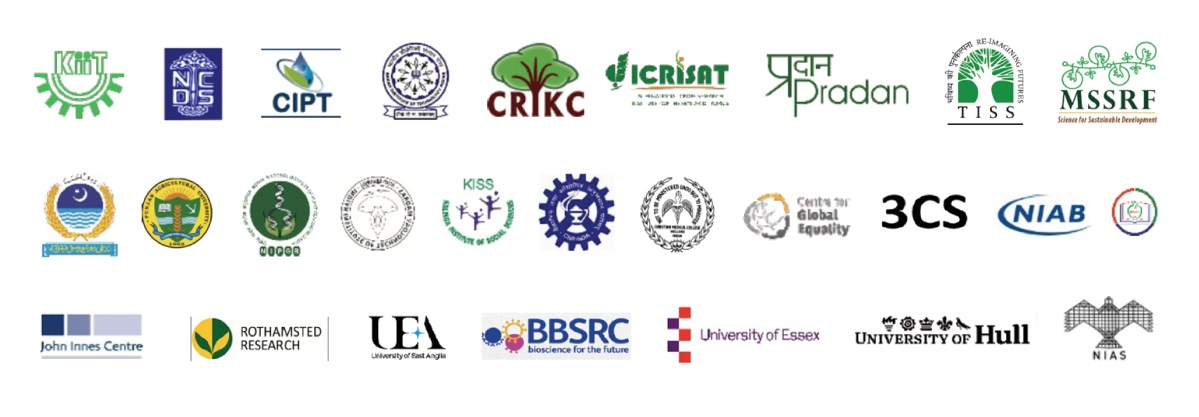









TEA BREAK
Lunch Break
LUNCH

Secretary to the Government of India.

Vice-Chancellor of the University of Cambridge.
Adviser, International Collaboration Department of Biotechnology, Ministry of Science and Technology, Government of India
Director Research Councils UK (RCUK), India

"Professor of Plant Ecology, Physiological Ecology Group, Department of Plant Sciences and Fellow of Clare College"
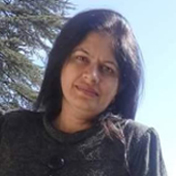
Wheat Breeder, Wheat Breeding and Genetics
Professor Ashutosh Sharma is the Secretary, Department of Science and Technoogy Government of India since january 09,2015. he was a professor (1997-), an Institute Chair Professor (2007-) and the Head (2003-05) of Chemical Engineering, and the founding coordinator of Nanosciences Center and Advanced Imaging Center at the Indian Institute of Technology at Kanpur. Ashutosh received his phD from the State University of NewYork at Buffalo (SUNYAB, 1988) working with prof. Eli Ruckenstein-arecipient of the US Medal of Science, his Ms from the Pennsylvania State University (1984) and B.Tech. from IIT Kanpur (1982).
Professor Toope joined Cambridge after distinguished career as a scholar and academic leader. he was Director of the University of Toronto's Munk School of Global Affairs (2015-2017), and before that President and vice-Chancellor of the University of British Columbia (2006-2014). He served as President of the Pierre Elliott Trudeau Foundation (2002-2006), and as Dean of Law at McGill University (1994-1999).
Dr. Shailja Vaidya Gupta has done her Ph.D. in Biochemistry from Indian Institute of Technology, Delhi. She handles International Collaborations in the Department of Biotechnology and has been instrumental in establishing active bilateral collaborations with Canada, Denmark, Estonia, Finland, Germany, Netherlands, Sweden, Spain, UK and US; and with EU. Dr. Gupta is also responsible for DBT’s collaborations with Non-Governmental organisations such as Wellcome Trust, Bill & Melinda Gates Foundation, European Molecular Biology Organisation (EMBO), European Molecular Biology Laboratory (EMBL) and PrakashLab, Stanford University.
Daniel joined as Director of RCUK India, in January 2017. He is responsible for delivering a vision for a stronger and deeper UK-India research and innovation partnership, working with Indian and UK collaborators to achieve excellence with impact. Previously, he led the international policy work of Universities UK International, the membership body for UK universities, and initiated the international and EU strategy for the Russell Group of universities. He worked on research funding and university-business interactions for the UK Government’s Department for Business Innovation and Skills, and in social enterprise. He studied Politics, Philosophy and Economics in Oxford and Philosophy in New York.
HOWARD GRIFFITHS is the Professor of Plant Ecology at Cambridge University, and Fellow of Clare College. He is Principal Investigator on the GCRF-funded TIGR2ESS project, funded to grow capacity for research in agricultural technologies in the UK and India, with a focus on building equality in health, nutrition and wellbeing for female agricultural workers. He is Co-Chair of the Cambridge Global Food Security Initiative, and has been helping to establish the new Cambridge Centre for Crop Science with collaborators at NIAB. He has been a regular visitor to India as part of ongoing collaborative programmes with the Department of Biotechnology, including UK-DBT Newton Bhabha funding for a virtual joint centre in crop nitrogen use. His research encompasses molecular mechanisms that enhance plant productivity, and also the use of stable isotopes to investigate carbon concentrating mechanisms, the use of water and nitrogen by crops, and modelling canopy development. His interests also extend to the physiological ecology of natural vegetation, including a longstanding programme within the tropical forests of Trinidad, investigating bromeliad and bryophyte epiphytes in terms of distribution, diversity and contribution to watershed management in a changing climate.
Dr Sharma research interests address the development of high yielding, disease resistant varieties for timely sown irrigated, late sown and rainfed/restricted irrigation conditions. Her work is largely on the material generation using diverse genetic input covering the wide spectrum ranging from wild wheats to elite present day cultivars. The major techniques used regularly include wide hybridization, marker aided selection, doubled haploids and mutagenesis along with conventional breeding methods. Among the traits of interest, yield is paramount followed by disease resistance (mainly stripe rust, leaf rust, stem rust and powdery mildew), abiotic stress tolerance (tolerance to heat, drought, NUE and micronutrient deficiencies) and quality (processing as well as nutritional quality).
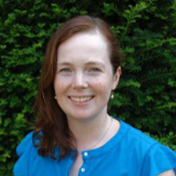
Director of Genetics and Breeding
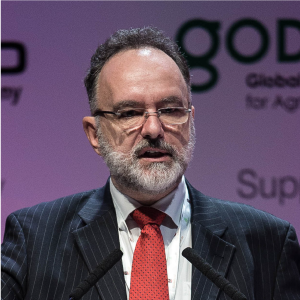
Executive Director

Research Program Director for Innovation Systems for the Drylands (ISD)

Director, Country Relations and Business Affairs
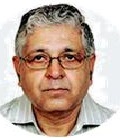
Vice Chancellor, Panjab University.
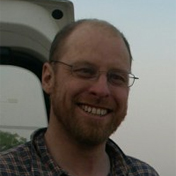
Reader in South Asian and Iranian Archaeology
He conducts research on the archaeology of India, Pakistan and Iran. I have been with the Division of Archaeology in Cambridge since 2005, when I became the Research Councils UK Fellow in South Asian and Iranian Archaeology. Prior to that I was the Katherine and Leonard Woolley Junior Research Fellow at Somerville College Oxford (2003-2006), and was appointed to that position after finishing my PhD at the University of Sydney (1998-2002). His research primarily focuses on the investigation of complex societies. I am particularly interested in the rise of complexity, the social and economic aspects of state formation, the impact that the growth of states and empires has on subjugated regions, and the relationships between humans and the environment. I have extensive field and research experience at archaeological sites dating from the Neolithic up to the medieval period in India, Pakistan and Iran, and co-direct projects in each of these countries."
Dr Bentley leads a 40-strong team of scientists working across a range of applied crop science project areas. Alison is involved in a wide-range of crop pre-breeding projects in the UK and internationally with an emphasis on wheat-rice systems in India. Her work is centred on the manipulation of crop adaptive response as well as the exploitation of crop diversity. She has a strong interest in the genetic control of complex traits and in the application of genomics towards the breeding of high yielding, climate resilient cereals. This includes the use of association mapping and genomic selection for the breeding and the development of multi-parent advanced generation inter-cross (MAGIC) populations for fine mapping. She is Chair of the UK MonoGram small grain and grasses community (www.monogram.ac.uk).
Mr. André Laperrière joined the Global Open Data for Agriculture and Nutrition (GODAN) initiative as its first Executive Director, in September 2015. During his career, Mr. Laperrière has led/managed numerous projects on behalf of large Private Corporations and subsequently, within the United Nations and the World Bank. Before joining GODAN, Mr. Laperrière was Deputy Chief Executive Officer at the Global Environment Facility (GEF) in Washington DC. Among other positions, he has also been the first Executive Director of the Trust Fund for Victims at the International Criminal Court (ICC), Director of the Administration and Finance Division in the World Health Organization (WHO), and Coordinator for reconstruction and rehabilitation activities under the responsibility of UNICEF in Iraq. Prior to his career in the UN, Mr. Laperrière was Director in the International Services of Price Waterhouse. In this position, he led multiple large scale business evaluations, privatizations, mergers and structural reform projects in Europe, Africa, the Americas and Caribbean. Mr. Laperrière was born in Canada, where he completed postgraduate studies in Administration and in Industrial Relations. Mr. Laperrière is an expert in international development."
Dr. Whitbread holds a PhD in Soil Science and Agronomy from the University of New England. He leads a team of scientists working on innovation systems mode devising strategies to manage climatic risk, soil fertility and identifying market led development opportunities. Prior to this, he worked on the crop-livestock systems of semi-arid Australia, SE Asia and Southern Africa. His team based work has received recognition with the “2006 CSIRO Learning Culture Award” and the 2013 CSIRO team medal for ‘Impact from Science’. In 2011, he became full Professor (W3) of Crop Production Systems in the Tropics at the Georg-August-Universität in Göttingen, Germany. Anthony’s has published more than 55 journal articles.
Dr. Padhee, has a Master’s degree in Agricultural Science from Banaras Hindu University and a PhD from the Indian Agricultural Research Institute (IARI), New Delhi. He also holds a Master’s degree in Public Administration from University of Birmingham, UK. He joined the Indian Administrative Services in 1996 and belongs to the Odisha cadre. He has held various positions such as District Magistrate and Collector; Director, Agriculture and Food Production; Revenue Divisional Commissioner; Chief Administrator and Joint Secretary, Department of Fertilizers, Government of India. During his tenure with the Odisha Government, he was instrumental in drafting the Odisha State Agriculture Policy in 2008. Among the notable awards and citations he has received during his career in the Civil Services are the Best Collector award (2002-03) and the National Award for contribution to humanitarian services given by the Indian Red Cross Society (2006-07). He was awarded the AIASA National Award for outstanding Leadership in Agriculture for the year 2016"
Professor Arun Kumar Grover, Panjab University Vice Chancellor, vice chancellor, Punjab University Arun Kumar Grover is the Professor and Vice chancellor at Panjab University. He earned his B.Sc. hons. School (Physics), 1971; M.Sc. Hons. School (Physics), 1972, Punjab University, Chandigarh; Ph.D. (Physics) T.I.F.R./University of Bombay, 1979.
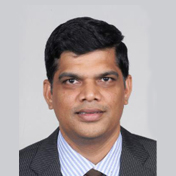
Senior Scientist and SystemsModeler working at Innovation Systems for the Drylands (ISD)
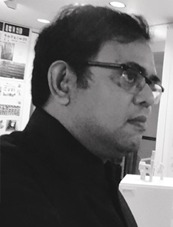
Design Chair
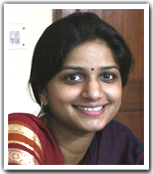
Design Chair
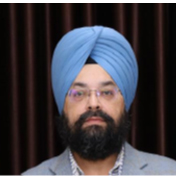
Professor,School of Mechanical Materials and Energy Engineering,

Head
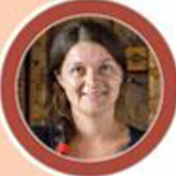
Senior Scientist, Department of Innovation Systems for the Drylands (ISD) - Systems Analysis for Climate Smart Agriculture (SACSA),
Mr. Balsavar an architect, writer, based in Vedanthangal and founded Artes-Human settlements research collaborative. Balsavar has been involved in rural communities and indigenous housing and social processes. ARTES was recognised for its best practices, in the rebuilding of Nagapatinam after the Tsunami. And has featured in several national and international forums and publications including DOMUS, Routledge Press, MIT Press. Balsavar is Design Chair at VIT School of Architecture and member of CMDA Master Plan 2026, Berlin Climate Policy 2025 and jury board of IIT, Gandhinagar and MACB UN-Post habitat III Barcelona Summit. Artes has built village knowledge centers in Tamilnadu and has evolved as a trans-disciplinary research practice. Balsavar as co-authored two books and contributes to several journals and The Hindu on the environment, planning policy and related disciplines.
"Dr. Gitanjali Yadav is a specialist in comparative genomics with special application to phytochemistry and plant communication. She is a Lecturer at the University of Cambridge, and a Scientist at the National Institute of Plant Genome Research, New Delhi. She is one of the first appointees of a Joint Deputation Program between India and the UK, and she divides her time between the two countries for teaching and research purposes. Her objective in this program would be to study carbon concentration mechanisms in the unicellular alga Chlamydomonas, using knowledge based Big Data approaches like Genomics and stereochemistry. Dr. Yadav has received several awards, including the Hamied Fellowship from the University of Cambridge, Exceptional Talent Award from the Royal Society of London, the prestigious INSA Medal from the Indian National Science Academy, and the Women's Excellence Award from SERB, DST. She holds a Ph.D. from the National Institute of Immunology, a Master's degree in Biomedical Research and a B.Sc.(Honors) in Botany, from the University of Delhi.
Dr. Dakshina Murthy obtained his PhD from University of Florida, Gainesville, US with a major in Soil and Water Science under India-US Agricultural knowledge Intiative program. He started work for ICRISAT in 2013 in Global Futures and Strategic Foresight (GFSF) project funded by Bill and Melinda Gates Foundation and CRP-PIM. Dakshina Murthy led the Agricultural Model Intercomparison and Improvement Project (AgMIP) as a part of the South india team, conductedintegrated assessments of climate change impacts to determine regional vulnerabilities, changes in comparative advantage, price effects, and potential adaptation strategies in the agricultural sector using multi model simulations. He is also leading climate change adaptation project funded by MOEFCC, Govt. of India in operation in Telangana, India. Dakshina‘s expertise mostly in the areas of agronomy, soil science, crop growth modeling, climate risk management and spatial analysis. He has published more than 30journal articles and five book chapters.
Dr. Singh holds a Ph.D in Surface Engineering. His areas of interest include Surface Engineering-Degradation of Materials and its prevention, Thermal Spray Coatings; Sustainable Manufacturing and Friction-Stir Processing/Welding. He has authored several book chapters and contributed more than 140 papers in various international/national journals. He has done pioneering work to explore the use of cold spraying to develop erosion-corrosion resistant coatings. He has completed and been pursuing several national and international sponsored projects with funding from MHRD, DST, CSIR, DRDO, EPSRC and UKIERI. He has produced 12 PhDs, whereas six more are currently working under his supervision.He is a recipient of “Kansai Nerolac Excellence Award for the Excellence in Coating Research”, “Young Scientist Award”, “Career Award for Young Teachers (CAYT)” and “Maharashtra State National Award for the Research Work done by the Teacher s of Engineering Colleges-2007” by Society for Surface Protective Coatings (India), Punjab Academy of Sciences, AICTE and ISTE respectively.
Dr. Kholova has a PhD in the Dept. of Genetics from the Charles University in Prague, Czech Republic, Faculty of Science, and Specialization in Plant Genetics & Physiology. The Key competencies are focused on integration of interdisciplinary research to enhance the cropping systems production improvement; Plant Stess, Physiology & Modelling & Genetics & Phenotyping & Plan Nutrition & Biochemistry & Molecular Biology. Her core competencies include dissection of environment-adaptive traits and translating them into high-throughput phenotyping methods and using system modelling tools to characterize the target environments and predict the effect of adaptive traits in the target agro-ecologies. She is currently coordinating multiple research projects and published ~ 29 articles (H-index of 14 and citations exceeding 650; 2017).
Jag is Head of the Centre for International Manufacturing, Institute for Manufacturing, University of Cambridge where he completed his PhD in Engineering, Manufacturing and Management. His research work and that of his group involves working closely with Industry in the analysis, design and operation of international production, supply and service networks. Current research areas include global value network analysis, service network integration, supply network resilience, sustainable industrial systems network design, and the development of new forms of supply network that support emerging industries. Research projects are cross-sector in nature but include supply network and industry transformations linked to specific challenges within Pharmaceuticals, Food, Automotive and Aerospace. Previous roles have been in industry working as a Supply Chain Director of a multinational regional business, Technical Director of a national business and other senior management positions within front-line operations. Jag also has significant consultancy experience involving the application of the latest research with leading multinationals and government organisations. These include major project assignments for UK government (BIS, FCO S&I Units), regional development agencies and international bodies (UNCTAD, UNIDO), and industry cluster associations (Automotive, Aerospace, Pharma, Biotechnology, FMCG, Logistics). Reconfiguration projects for Industrial clients include leading manufacturing companies from across the globe, including Aggreko, BAE Systems, Huawei, General Motors, GSK, Lego, Rolls Royce, Ulstein and Unilever. Dr Srai also holds a first-class honours degree in Chemical Process Engineering from Aston University and is a Fellow of the Institute of Chemical Engineers.

Institute Chair Professor
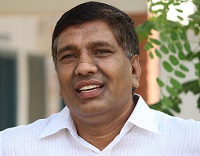
Agricultural Economist
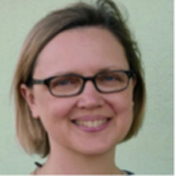
CEO,Centre for Global Equality
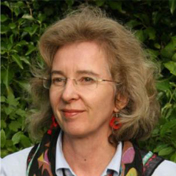
Head, Innovation Farm and the Eastern Agri-Tech Innovation Hub
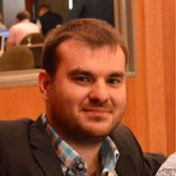
Research Associate
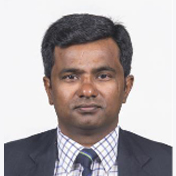
Senior Scientist (Economics),
K. Narayanan obtained his Ph.D in Economics from the Delhi School of Economics, University of Delhi, India, and carried out Post-doctoral research at Institute of Advanced Studies United Nations University, Tokyo, Japan. His research interests span the areas of industrial economics, international business, Socio-economic empowerment through ICT, Environmental Economics, Economic impacts of Climate Change and Development Economics. The research journals in which he has published include Research Policy, Journal of Regional Studies, Technovation, Oxford Development Studies, International Journal of Energy Economics and Policy, Current Science and Economic and Political Weekly. He has jointly edited 6 books, published by Springer and Routledge and 2 special issues of peer-reviewed journals. He is actively engaged in a web based research group, Forum for Global Knowledge Sharing, which interfaces Scientists, Technologists and Economists. Currently, he is an Institute Chair Professor at the Department of Humanities and Social Sciences, Indian Institute of Technology Bombay, Mumbai, INDIA."
Dr. Allen is CEO of the Centre for Global Equality, a Cambridge-based civil society organisation that enables the evolution of innovative solutions to global challenges by facilitating productive interactions between academic researchers, businesses and under-resourced communities in the developing world. She is also an Affiliated Lecturer of the Centre for Development Studies at University of Cambridge, and Director of Implementation and Impact for the Global Challenges Strategic Research Initiative, the University network for the UN Sustainable Development Goals. Lara has extensive experience working in academia and in international development. Her research interests include the relationship between marginalised communities and conservation areas, the role of fine and performing arts in community development, and methodologies of co-creation. She is particularly interested in evolving effective models of interaction between universities and under resourced communities to make university capacities and resources available to such communities in a mutually beneficial manner
She leads Interactive farmer-facing research into sustainable farming; especially crop genetic improvement and waste minimisation. After gaining a PhD in plant microbial ecology, she lectured in soil science, crop microbial interactions, and land reclamation at Universities of E. London and Luton. Joining NIAB in 1997, Lydia initially built up the research remit broadly, personally focussing on novel/non-food crops. She conceived and set up ’Innovation Farm’ in 2009. It now provides a practical grower-facing research facility, with knowledge exchange and route to application for end-users in industry at its core (www.InnovationFarm.co.uk). Since 2016, she is also now leading the East Agri-tech Innovation Hub (www.innovationHubuk.co.uk); providing a pilot study resource for farmers and researchers to minimise waste in farming. She remains committed to genetic improvement and crop microbial interactions of forage legumes."
Dr. Kamal Vatta is an agricultural economist specialising at the interface of economics with the natural resource degradation (specifically water), agriculture and rural development processes like labour markets. A gold-medalist in PhD Agricultural Economics from Punjab Agricultural University, he also has an advanced diploma in Agricultural Research for Development from International Center for Development oriented Research in Agriculture (ICRA), Wageningen, Netherlands. Prior to joining CIPT as Director, Dr. Vatta was positioned as Associate Professor of Economics at Department of Economics and Sociology, Punjab Agricultural University, Ludhiana, India for six years from 2008 to 2013. His concurrent positions include: Adjunct Research Scientist at Columbia Water Center, The Earth Institute, Columbia University, New York, USA and Joint Secretary at Journal of Agricultural Development and Policy, Ludhiana, India. He has previously held the positions of Editor at Journal of Agricultural Development and Policy, Ludhiana, India and Member, Editorial Board, Journal of Agricultural Development and Policy, Ludhiana, India. Dr. Vatta is recognised for his contributions in the fields of research on sustainable agriculture, development economics and resource sustainability, and has been endowed with several awards and distinctions throughout his career. He has over 70 peer reviewed publications in the area of agriculture, economics and development, and has led more than 20 projects in various capacities in these fields both nationally and internationally.
Dr. Tsolakis work focuses on industrial systems and network analysis issues across a range of industrial applications and with an inter-disciplinary outlook. More specifically, his main research and practice interests are in the areas of simulation modelling and analysis of intelligent autonomous systems along with supply chains design and management, for the industrial manufacturing and agrifood sectors.
Dr. Swamikannu is a well-trained Agricultural Economist with ten years of experience in the field of development, policy analysis, natural resource management (NRM), foresight and scenario analysis of dryland crops, adaptation and mitigation to clima te change and ex-ante impact assessment of technologies and development program and has conducted research in collaboration with multiple stakeholders both Asia and sub-Saharan Africa. His current leading projects are: (i) Foresight and scenario analysis under CRP-Policies, Institutions and Markets; (ii) ICRISAT-SLU project on the dynamics of Urban Sprawl and its impacts on agriculture. He is coordinating and conducting research in CRP- CCAFS on climate change impacts on agriculture production systems, farm household vulnerability and assess the potential of promising crop technologies under climate change condition. By using his analytical prowess harnessing national, regional, meso and micro farm level database, he has also contributed to the CRP Dryland Cereals and Grain Legumes.
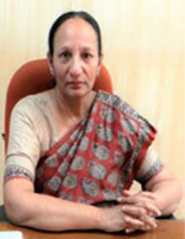
Former Dean, Postgraduate Studies

Professor in Operations and Supply Chain Management and Head of Management Systems Subject Group
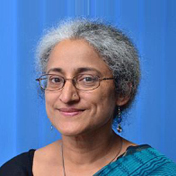
Professor of Gender and Development
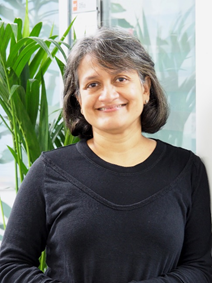
Program Director
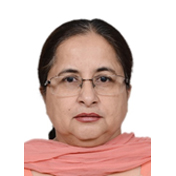
Director, School of Agricultural Biotechnology
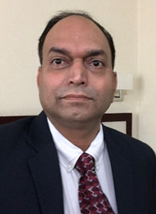
Prinicpal Scientist and Theme Leader for Genomics and Trait Disocevry
Dr Neelam Grewal is the former Dean, Postgraduate Studies of Punjab Agricultural University, Ludhiana prior to which she was the Director of ICAR Central Institute for Women in Agriculture (CIWA), Bhabaneswar. In the capacity of Director CIWA Dr Grewal planned for and supervised 17 institute research projects related to women in agriculture, their livelihood and food security, engendering value chains as well as drudgery reduction of women on agriculture. She has also been the National Project Director of All India Research Project on Home Science operational in 09 states of the country that was oriented towards empowerment of women in agriculture. She has been a member of a number of national level committees related to capacity building of women in agriculture and has led the Joint Review Missions to review the implementation of Mid Day Meal Scheme and carry out nutrition assessment of school children in several statesDr Grewal has Chaired Sessions/ delivered Keynote Address on Women’s Issues during many workshops/conferences organised by various organizations including IFPRI, CEDAW and Commonwealth Parliamentary Committee on Agriculture.
Nishikant Mishra is Professor in Operations and Supply Chain Management and Head of Management Systems Subject Group at Hull University Business School, University of Hull. In recent years, he has contributed to several research projects funded by Innovate UK, BBSRC, EPSRC, Rural development plan for Wales, Global Challenges Research Fund (GCRF). He is also part of different scientific committee and session chair of several international conferences. He has published about 60 papers in leading international journals and conferences. In the last few years, he has conducted multi-disciplinary research into logistics, supply chain management, agrifood, healthcare, lean and agile systems, and general operations management area. His research interest includes the fields of case-based reasoning, multi-criteria decision analysis, modeling of uncertainty by fuzzy sets, meta-heuristics, hyper-heuristics and multi-agent systems. He has extensive experience in optimization and decision support system development and has managed more than £15m research grant.
Dr. Nivedita Narain is concurrently working as Integrator in PRADAN and Senior Fellow at the Centre for Development Practice, Ambedkar University Delhi. She has 3 decades of experience of working with Civil Society in India, especially in the area of women and gender, having established India’s first SHGs. Her work has spanned livelihoods, organisation development and human resources management and research. She currently leads PRADAN’s initiative to work closely with the higher education sector, to introduce Development Practice as a new profession in India. She is also Atlantic Visiting Fellow at the International Inequalities Institute at the London School for Economics and Political Science in the UK.
Dr. Rao has over 30 years’ experience as a field-level practitioner, trainer, researcher and teacher. She has worked extensively in the field of gendered land relations, agriculture, food and nutrition security, migration, climate change, education and intra-household relations. Her current research projects are located in India and East Africa. She has published extensively on these themes in peer-reviewed journals and books. Her research monograph, "Good women do not inherit Land": the politics and land and gender in India, was republished in 2012. Nitya has worked with UN agencies, bilateral donors and NGOs and has participated in several UN Expert Group on Women’s rights and economic agency, and serves of the Global Advisory Committee of the UN Girls Education Initiative.
She works on wheat wide hybridization for the identification and transfer of novel alleles and genes from progenitor and non-progenitor Aegilops and Triticum species. Her group has transferred and mapped a number of alien genes for disease resistance, productivity and quality traits which are being used in the wheat varietal development programme for diversifying the breeders’ germplasm base. Parveen has published 72 research papers in peer reviewed journals. She has handled 15 competitive research projects as principal investigator including five international network projects. Presently she is principal investigator of three Indo-UK research grants. She has supervised 17 post-graduate students. Dr Chhuneja has been awarded Dr Gurdev Singh Khush Distinguished Professor award by her institution for 2016-19. Dr Parveen Chhuneja has worked as visiting scientist at Institute of Plant Molecular Biology, University of Zurich, Switzerland and John Innes Centre, UK.
Dr Rajeev Gupta is a result oriented and accomplished Biotechnologist, Molecular Biologist, Molecular Geneticist and a successful leader with a PhD and PDF from University of Cambridge, UK and UC Berkeley, USA, respectively. Currently Dr Gupta is the Prinicpal Scientist and Theme Leader for Genomics and Trait Disocevry at International Crops Research Institute for the Semi-Arid Tropics (ICRISAT), based in Hyderabad, India. In addition, Dr Gupta is also leading flagship program on pre-breeding & trait discovery in CGIAR research program on Grain Legumes & Dryland Cereals (gldc.cgiar.org). At ICRISAT, Dr Gupta leads a team of scienstists working on developing and applying modern reources, tools and technologies in genomics, genetics and trait discovery programs in ICRISAT’s mandate cereals (sorghum, pearl millet, finger millet) and grain legumes (chickpea, groundnut, pigeonpea) to accelerate the rate of genetic gains to improve the income and livelihood of small holder farmers in semi-arid tropics regions of south Asia and sub-Saharan Africa. With more than two decades of international experience in non-profit, public and private sectors, Dr Gupta published more than 25 research articles in high impact international journals such as Nature, PNAS, The Plant Cell, etc. in addition to around 50 patent applications related to abiotic stress tolerance and yield enhancement in crops.
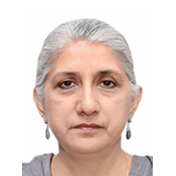
Chairperson, Department of Public Administration and Director, Research Promotion Cell, Vice Chancellor’s Office

Joint Director (Edu.) & Dean, IARI
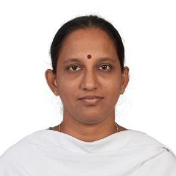
Director, JRD Tata Ecotechnology Centre
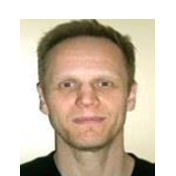
Affiliated Lecturer

Part of the phenotyping group within the Genetics and Pre-breeding department

Part of the phenotyping group within the Genetics and Pre-breeding department
Ramanjit Kaur Johal, Chairperson, Department of Public Administration and Director, Research Promotion Cell, Vice Chancellor’s Office, Panjab University Chandigarh, did her Masters’ and Ph.D. in Public Administration from Panjab University, Chandigarh following a BA Economics (Hons) from Lady Shriram College for Women, Delhi University. Her areas of teaching and research interest include Public Policy and Administration including substantive aspects like education, health, urban development, environment and agriculture policy, social policy, civil society participation and administration of NGOs. A Shastri Indo-Canadian Researcher (2003-06) on a project on agriculture and environment sustainability, and two times Fulbright Awardee (2012 & 16), Prof. Johal has also been a consultant to the Commonwealth Youth Asia Center on participation of youth in local governance (2010-11). She sits on various committees of the government, universities and research institutions in North and North-West India including the Indian Institute of Public Administration, New Delhi. She has published an edited book, research reports and over two dozen research papers.
Dr. Rengalakshmi, holds doctoral degree in Agronomy and Conservation Biology. She has over twenty-two years of experience in working with interdisciplinary team as a field worker, researcher and development professional on agriculture and small holder livelihoods in India. She also worked in South Asian countries (Sri Lanka, Maldives and Nepal) on organic farming and small holders empowerment. Her professional areas of interest are sustainable agriculture, natural resource management, climate change, smallholder livelihoods, institution building and gender. She has evaluated several developmental programmes implemented by civil society partners in South Asia and published in peer-reviewed journals and books.
Dr. Sidebottom holds a PhD & MPhil in Development Studies from the University of Cambridge, an MSc in Finance from London Business Scho ol and an MA in History & Economics from the University of Oxford. Richard teaches in African Studies, Development Studies, Land Economy and the Institute of Continuing Education. His research interests include Rural Development, Entrepreneurship, Agricultural commodity markets and Renewable energy. Prior to Cambridge, Richard worked for over 20 years as an Emerging Markets Fund manager in London & Singapore.
As an outstanding Plant Virologist, Dr. Jain's research canvass includes emerging plant viruses such as “Tobacco streak virus (TSV) affecting sunflower and groundnut, Papaya ringspot virus (PRSV) affecting papaya and Groundnut bud necrosis virus(GBNV) affecting tomato with reference to assess their distribution profile and genetic diversity, development of diagnostics and virus resistant transgenic plants (VRTPs). He is recipient of IARI Gold Medal, 1989; M.J.Narasimhan Award 1999; IARI Best Teacher Award, 2004; Vasvik Award, 2007; Hari Krishna Shastri Memorial Award, 2010; B.B. Mundkur Memorial Award, 2011. He is the Fellow of National Academy of Agricultural Sciences; Indian Phytopathological Society and Indian Virological Society. He was the President, Indian Phytopathological Society, 2009; Vice-President, Indian Virological Society, 2011 and Editor-in-Chief, Indian Journal of Virology, 2008-11.
Robert Doubleday was appointed CSaP Executive Director in 2012, having previously established the Centre’s research programme. His research is concerned with understanding the role of science and technology in contemporary societies (in particular the relationship between scientific advice, policy and democracy), and with developing collaborative methods of working with scientists and engineers on the public policy dimensions of their research.
Robert works as part of the phenotyping group within the Genetics and Pre-breeding department at NIAB. Robert obtained a PhD. in molecular biology and phenotyping from the University of Nottingham and Rothamsted Research. Following his PhD, Robert worked for a year as part of Malcolm Hawkesford’s group at Rothamsted focusing on remote sensing methods to analyse grain quality and the nitrogen content of milled wheat grain and straw. At NIAB Robert is working with Eric Ober and Ian Mackay on high-throughput phenotyping of large scale field trials, genomic selection and drought resistance. Robert has a strong interest in field phenotyping by remote sensing and how it can contribute to solving the problems facing modern agriculture. In addition, Robert retains an interest in the genetic and hormonal control of plant growth and development.
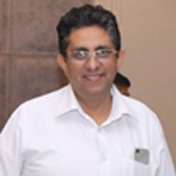
Professor of Business Management
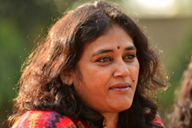
Director
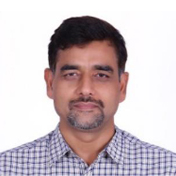
Principal Scientist in MIND theme of the Innovation Systems for the Drylands Program
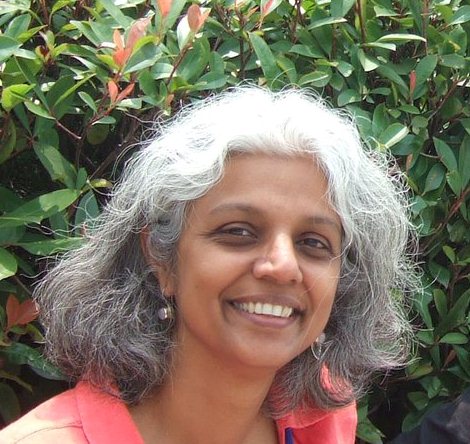
CO-I
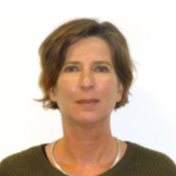
Molecular Plant Physiologist
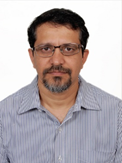
Director
Dr. Sandeep Kapur (51) is professor of business management at Punjab Agricultural University, Ludhiana, India (PAU). He has also been given the responsibility of acting as Comptroller at PAU.(This is a senior management handling annual budget of around Rs.500 Cr.) He has teaching, research and consultancy responsibility in marketing and strategy areas. His current research interest includes Strategic Management, Value Chain Analysis and development of competitiveness with the help of “Cluster Development Approach”. He has guided the research work of more than 80 MBA students and one Ph.D. student. He has led and delivered various international training programs backed by UNIDO (United Nations Industrial Development Organization) on developing competitiveness of clusters using “Cluster Development Methodology”. He has also handled various international projects involving different stakeholders. He took his PhD , MBA and B.Tech from PAU. He earned scholarship/ fellowship throughout his higher education.
Dr. Kumar, has worked on understanding climate change impacts on agriculture, adaptation pathways and transitioning climate smart agriculture at farm, village and regional scale. He promotes holistic approaches using participatory and quantitative tools, bio-economic modelling as decision support in co-designing integrated farming systems and co-developing scaling up strategies for climate smart agriculture. He led a trans-disciplinary team to design and implement a Flagship climate adaptation program of Government of India ‘National Initiative on Climate Resilient Agriculture’ across 100 districts of India successfully. He promotes the innovation systems approach which allows the systems of actors to come together to find solutions to the common/interlinked problems targeting sustainable transformation of agri-food systems.
Sejal Dand is a feminist activist based in India, and serves as the Director of ANANDI Technical Support Unit. As a founder member of ANANDI , a feminist collective she has worked with organizing rural & tribal marginalized women in Gujarat (1995-2010). She has been active in the state and national campaigns on Right to Food and also served as one of the National Advisor to the Commissioners appointed by the Supreme Court of India ( 2008-2017). She is founder member of SAFA (South Asian Feminist Alliance) and MAKAAM (Mahila Kisaan Adhikar Manch) which advocates for recognition and rights of small and marginal women farmers in India. She is currently engaged with the alliances advocating for universal maternity entitlements & crèches , women’s land , livelihood rights & social protection, building capacities for women’s empowerment & gender equality in several state, national government programs and NGO’s in India.
Dr. Shailaja Fennell is a co-I on TIGR2ESS, a research programme to study how to improve crop productivity and water use, identify appropriate crops and farming practices for sustainable rural development, with funding of £ 7.8 million form the Global Challenges Fund of RCUK. She was awarded the UGC-UKIERI grant for a collaborative research initiative, in partnership with Anglia Ruskin University, and the Indian partners were the Indian Institute of Technology-Madras and University of Punjab, Chandigarh for 2014-16. The project focussed on understanding how bottlenecks that limit Internet access for rural agricultural production and community-based tourism can be removed, using the Portolan application and android mobile phones, to collect upstream data and an innovative survey instrument to collect downstream data. Dr Fennell’s research interests include institutional reform and collective action, food production and rural development; gender norms and gender gaps in development interventions, and provision of public goods and the role of partnerships.
Dr. Heuer, is currently developing her research program on abiotic stress tolerance (focus on heat) and nutrient use efficiency (nitrogen and phosphorus) in wheat and rice. Sigrid has an MSc in Plant Physiology and a PhD in Plant Molecular Biology from Hamburg University in Germany. She has worked at the Africa Rice Centre in Senegal and the International Rice Research Institute (IRRI) in the Philippines. At IRRI, s he was involved with the development of submergence tolerant (“scuba” or Sub1) rice, which is now widely grown in flood-prone areas across Asia. Her team has also identified a major gene for phosphorus deficiency tolerance (PSTOL1) from traditional rice, which acts as an enhancer of root growth. Apart from this, Sigrid was involved with projects on heat tolerance in rice and continued to work in this area when she moved to the Australian Centre for Plant Functional Genomics (ACPFG)/University of Adelaide in 2013. There, she was leading Pioneer-DuPont collaborative projects on nitrogen use efficiency in wheat. She was acting CEO during 2014 and director of an Industrial Transformation Research Hub “Wheat in a Hot and Dry Climate”, involving three Australian breeding companies and three Australian universities.
Professor Srijit Mishra is Director, Nabakrushna Choudhury Centre for Development Studies (NCDS), Bhubaneswar, an Indian Council of Social Science Research institute in collaboration with Government of Odisha. He researches and teaches on development-related issues. Some of his recent works are on agrarian crises and farmers’ suicides in India and on measurement issues. Currently, he is spearheading an action research with a unique institutional architecture that brings together Government, Civil Society and Academia in the revival of millets in tribal areas of Odisha. A recent co-authored publication of his, "A MANUSH or HUMANS Characterisation of the Human Development Index," proposes a new method of aggregation for multiple dimensions.

MRC-EWL Senior Medical Advisor & Senior Clinician Scientist

Senior Lecturer, Digitalisation and Operations Management, Innovation, Technology and Operations Management Group
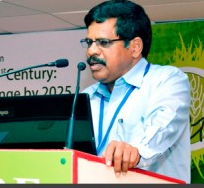
Executive Director
Sumantra (Shumone) Ray is a Medical Doctor and Registered Public Health Nutritionist. Shumone is Founding Chair of the NNEdPro Global Centre for Nutrition and Health, in Cambridge and in 2015 he was elected as a governing body Fellow of Wolfson College, University of Cambridge. Also in 2015, NNEdPro won the Complete Nutrition Outstanding Achievement Award and Shumone was appointed Adjunct Professor at University of Waterloo. In 2016, Shumone was appointed Visiting Professor at Imperial College London and Ulster University and NNEd Pro was a finalist in the 2016 BMJ Awards. In 2017 NNEdPro won the Medical Nutrition industry international Award and Shumone became an Honorary Professorial Fellow at University of Wollongong. Most recently he became Founding Co-Chair of BMJ Nutrition, Prevention and Health. Shumone has several years’ experience of leading projects in India and internationally and is Co-Lead for a flagship project under the ‘TIGR2ESS’ Global Challenges Programme in Cambridge.
Prior to joining UEA in August 2017, Tomás was a Senior Researcher at the University of Cambridge’s Institute for Manufacturing (2009-17). Tomás’s research focuses on industrial systems transformation, enabled by the adoption of advanced manufacturing and digital technologies. At Cambridge he co-developed a series of successful grant proposals, including the European Institute of Innovation and Technology KIC in Food (EIT Food)and TIGR2ESS FP5, and was heavily involved in consultancy projects with leading multinational companies and SMEs. Previous senior roles in industry have encompassed new product development, process design, and big data analytics, most recently with Intel Corporation. Tomás holds Bachelor’s and PhD degrees in Chemistry, and an MBA (distinction) for which he received a Chartered Management Institute Award in 2008.
Dr. V. Selvam is Executive Director and Director of Coastal Systems Research Programme at MSSRF. He has nearly 30 years experience including over 22 years in MSSRF in research and management of mangrove ecosystem including its restoration and conservation. An expert in science-based and community-centred coastal resources management, he has experience in designing and demonstrating artificial reef and integrated mangrove fishery farming system and skills in management of coastal forest such as tropical dry evergreen forests. With a post-graduate degree in Marine Biology and Oceanography and Ph. D degree in Marine Biology he is author of three mangrove atlases, seven manuals on community based mangrove conservation and management, 25 publications in national and international journals including a publication on Protective Role of Coastal Vegetation in Science.
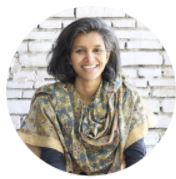
Founder and CEO, Vertiver.

Founder and CEO, IORA Ecological Solutions.
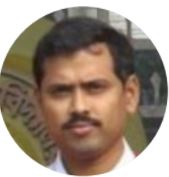
Manager, Remote Sensing & GIS, IORA Ecological Solutions.
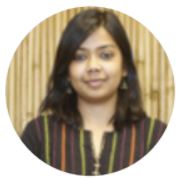
Manager, Climate Policy, IORA Ecological Solutions

Senior Research Associate, IORA Ecological Solutions
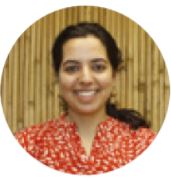
Research Associate, IORA Ecological Solutions
Chhaya is the founder of Vertiver, a sustainability strategy and communications consultancy specialising in forestry, sustainable land use and clean technology. Prior to founding Vertiver, she worked extensively in the U.S on brand strategy, renewable energy and climate change. Chhaya is also the co-founder of SANJHI, an NGO that works on media-based storytelling for environmental action. She holds an MBA in Sustainability and an M.A in Communications and Film.
Mr. Swapan Mehra is the founder of IORA Ecological Solutions, a firm pioneering the development of projects and policy interventions promoting climate change adaptation and mitigation in forestry, agriculture and energy domains applying cutting edge spatial technology, ICT tools and alternative finance. Swapan, A FICCI Young Business Leader and a Donella Meadows Fellow to the Balaton group is involved in several leading national and international initiatives engaging with the Government of India, State Governments, UN Agencies, IUCN, USAID and other leading development groups, leading private sector organisations and financial institutions.
Surajit Ghosh a remote sensing researcher specialised in the field of Remote Sensing and Geographic Information Systems. He has conducted research on (i) Water level estimation in the Indian waterbodies using radar altimetry data, (ii) Software development for altimetry data downloading and processing (iii) Mapping flood inundation extent of south-east Asia (iv) River morphology and Hydrological modeling in part of western Himalayan region in the context of climate change, (v) LiDAR data for forest resource assessment and hydrological modeling (v) Historical Forest Cover Loss and Fragmentation in Elephant Habitats of India, (vi) Mangrove cover changes (1989-2017) in the wetlands of Indian Sundarban etc. He completed his Masters in Computer Applications and Oceanography. Currently, he is pursuing in Doctoral degree.
Sriya has expertise in the areas of climate change and clean energy. Her key skills are in policy analysis, programme strategy planning, and project development and management. In the past, she has been involved in several climate change related initiatives at the national and sub-national level in India. Some of her key assignments at IORA include the development of India’s First Nationally Appropriate Mitigation Action (NAMA) in the forestry sector; development of Business Investment Models for Climate Change Adaptation in India; and Estimation of Potential Value or Ecosystem Services and Development of REDD+ Project for Assam. Sriya holds a Master’s in Environmental Studies under the European Commission’s Erasmus Mundus Programme.
Shourjomay has over three years of experience in the field of agriculture, climate change and water management. At IORA, Shourjomay works on water and climate change related issues. Prior to joining IORA, he was associated with the Institute for Resource Analysis and Policy. He has worked extensively on issues related to drought management, urban water management, desalination and climate risk analysis among others. At the Council on Energy, Environment and Water he was part of the team to develop the first bottom- up HFC emission module for India. He is a post graduate in Environmental Studies and Resource Management from TERI University.
Bhavya has over three years of experience in the field of energy,partnerships arrangements and climate policy. At IORA, Bhavya has been engaged in the organization’s Public Private Partnerships arrangements for implementation of activities related to forestry and ecosystem conservation services. She has also been working with the climate policy team developing Sikkim Climate Inventory & Monitoring System (SCIMS) in Sikkim. She holds a post graduate degree in Environment and Development from Dr. B.R. Ambedkar University, Delhi.

• Policy outputs to shape a new Green Revolution;
• How to empower, educate and improve nutrition for rural female farmers and labourers;
• Opportunities for engagement of rural youth and development of entrepreneurship;
• Identifying appropriate crops and cropping practices for contrasting climatic regions;
• Enhancing research capacity and skills to address key food security Issues for UK and India.
